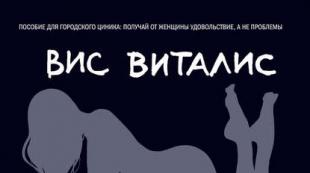Poem "Mtsyri" (1839). Mikhail Yurievich Lermontov (1814-1841). Poem "Mtsyri" (1839) Predecessors in literature
The poem "Mtsyri" by Lermontov, written in 1839, is the pinnacle of the development of the classic Russian romantic poem. When creating it, Lermontov adhered to the traditions of the Byronic poem, but at the same time managed to bring exclusively his own, author's features to the work. "Mtsyri" tells the story of a typical romantic hero. At the same time, the composition of the poem "Mtsyri" by Lermontov, as well as its plot, are unique.
Features of the composition
The poem is divided into two unequal parts. The first, occupying two chapters out of twenty-six, acquaints the reader with the scene of the action (a description of the monastery is given), and briefly tells about the hero's life before the events taking place. Here, in the second chapter, the plot of the poem "Mtsyri" is presented. The main character- a captive Caucasian boy, was brought to a monastery, where, after a long illness, he remained to live as a novice. In the monastery he was educated, learned a foreign language and was preparing to tonsure, but one night he disappeared on a stormy night. An unsuccessful search lasted for three days, but when the monks finally found him, Mtsyri was already dying. Gathering his last strength, he makes his famous confession.
The whole fate of the protagonist is revealed already during the reading of the second chapter, but, in this case, what is most of the poem devoted to? In it, Lermontov gives the floor to his protagonist, gives Mtsyri the opportunity to "tell his soul." The experiences of the romantic hero, his search for freedom, both external and internal, and, in the end, despair from the failure that befell him - these are the basis of the remaining twenty-four chapters. In order to reveal the inner world of Mtsyri as fully as possible, Lermontov chooses a form of confession, which was considered one of the most successful forms for romantic works.
As you can see, the composition of Mtsyri's poem contains all the main elements in direct order. The exposition is given - a story about the life of the hero in the monastery, the plot of the plot can be considered the moment of Mtsyri's escape from the monastery. There is also a traditional ending for a romantic poem - the death of a character. With the main elements of the poem preserved, the peculiarities of the composition "Mtsyri" are precisely in the ratio of the time plans in the poem and the size of the parts of the composition. The emphasis is on the three days spent by Mtsyri at large: the poem is dedicated to them, and not to the rest of the hero's life. Lermontov emphasizes the importance of these days compositionally, thanks to their extensive description. He also turns to artistic and stylistic techniques. The change of the dry, short, like notes in a diary, narrative style at the beginning of the poem to a figurative, and in some places even an enthusiastic speech on behalf of the protagonist once again emphasizes the importance of his confession.
The climax of the poem
An important compositional element necessary for moving the plot forward is the culmination - the moment of the direct collision of the hero and his antipode, or the struggle of their ideas. In the case of "Mtsyri" the culmination of the poem can be called the episode of the hero's battle with the leopard. Here Mtsyri appears before the reader at the peak of his physical and spiritual beauty. He not only wins the victory, but also merges with nature into a single harmonious whole. The moment of his triumph is not overshadowed by hatred of the rival, Mtsyri sincerely admires him and revels in the beauty of the battle. For him, this is a confrontation on an equal footing. This is also unusual in a classical romantic poem, which usually clearly defines the sides of good and evil. In Lermontov's poem, it is impossible to define with certainty who is considered the main enemy for the hero and on the opposition of what the plot of "Mtsyri" is based on.
Features of the conflict in the poem
Nature is personified in the poem, she is an actively acting character, and its manifestations: a leopard, a dark forest, the heat of the day lead the hero astray and block his path to his homeland. This is due to the fact that Mtsyri, as he speaks of himself, is a child of bondage, a "flower" grown in the monastery walls. An overly bright ray of the sun - this is how the free life is metaphorically denoted in the poem - can destroy him, which is what happens. But nature cannot be considered an enemy for the protagonist, since he himself is a part of it, and only in unity with it can he consider himself happy. “Three blissful days” - this is how Mtsyri recalls the days spent in freedom.
The main enemy of the hero can be considered the society, which gave birth to such ugly things that crippled the fate of Mtsyri, such as war and a monastery. But society is given in the poem rather as a subtext, it is not directly expressed anywhere. The hero complains that he will "die a slave and an orphan", but at the same time does not seek to accuse anyone: "And I will not curse anyone!" Lermontov leads the reader to the idea that this conflict has not been resolved, because not only the monastery becomes a prison for Mtsyri, but the whole world as a whole. Raised by strangers, he turned out to be cut off from his native culture, and now it is just as hostile and incomprehensible to him. The only possible way out for him is death, and the death of Mtsyri in the poem is not dictated by the requirements of the plot of the romantic poem, it is the only means of resolving the conflict.
The action of the poem begins in the monastery - there it will end. Therefore, the composition "Mtsyri" refers to closed compositions. Thanks to this isolation in the last lines, Lermontov's favorite motive sounds especially strong - the motive of fate, inevitable and inevitable. "But I argued in vain with fate: / She laughed at me!" - exclaims Mtsyri before his death. A carefully constructed composition in combination with an unusual plot helps to fully reveal the tragedy of Mtsyri's life and raise Lermontov's poem to the heights of romantic creativity.
Product test
In this lesson, you will study in detail the composition of the poem by M.Yu. Lermontov's "Mtsyri", you will reveal the philosophical motives that are hidden in the poem, consider the meaning of the main images of the work, learn the role of sounds in the poem, get acquainted with the assessment of contemporaries of the poem "Mtsyri".
The poem does not contain the background of the hero. In the exposition (in the first two chapters) only a few biographical facts are outlined.
The poem begins with a description of the collapsed monastery, gravestones:
... the gray-haired old man,
The half-dead guard was ruined.
The poem also ends with the theme of wilting and death: the last words of the dying hero.
Very often romantic poems begin with the image of the ruins of a monastery, a fortress wall or a castle (Fig. 2). As if the power of time is being demonstrated. And only the artist is given his imagination to resurrect history, people of past eras, events that have long been in the past.

Rice. 2. Ruins of Eldena monastery ()
The poem contains signs of a circular composition: the hero finds himself in a monastery, escapes from it, and eventually returns to it (Fig. 3).

Rice. 3. Jvari Monastery, where Mtsyri lived ()
The poem consists of 26 stanzas, 24 of which are the hero's confession. Note that the hero's confession is not just formally present. Lermontov sometimes reflects (the reflections of the hero, which sometimes echo Lermontov's poems) about whether or not it is possible to transfer his inner world to another. This topic was raised by Tyutchev (Fig. 4):
Will he understand what you live for?
A spoken thought is a lie.

Rice. 4. Full name Tyutchev ()
But this is how it looks in Mtsyri:
Everything is better in front of someone
To lighten my chest with words ...
Another side of this topic is also considered here:
It's a little good for you to know
Can you tell your soul?(fig. 5)

Rice. 5. Mtsyri in the monastery ()
One side,
Memories of those minutes
In me, with me, let them die.
The point is that I will not share my personal memories. They are my personal, even if they stay with me.
But, on the other hand, as it is said in the poem "Do not believe yourself":
With a measured verse and an icy word
You will not convey their meaning.
That is, do not even try to tell about yourself.
This contradictory desire of the hero to tell about himself and the doubt that it is possible, that it is achievable, is very important for Lermontov. It is interesting to compare the first two chapters, which tells about the events preceding the hero's confession, with what happened during the 3 main days of his life. There are many events there, but this story is inevitably superficial. In 24 chapters, Mtsyri talks about his feelings, wanderings, searches. These two uneven fragments of the poem are contrasted. That is, the introduction says about "Guardian walls of the monastery", and Mtsyri (Fig. 6) says: "In the gloomy walls".

The action of the poem takes place not in a monastery or in a forest. It happens - and this makes Mtsyri a philosophical poem - in the face of heaven and earth. This is some kind of human tragedy, which is played out in the face of heaven and earth (Fig. 7):
And again I fell to the ground
And again began to listen attentively
They whispered through the bushes
As if they were speaking
About the secrets of heaven and earth ...

Rice. 7. Escape Mtsyri ()
There is not a single proper name in the poem. People are named according to their position:
Mtsyri is a non-serving monk;
gray-haired old man:
such and such a king;
Russian general;
captive child;
one monk;
Georgian;
This is how the characters of the poem "Mtsyri" are designated. We are talking about a universal, all-human drama that is being played out in the face of the Universe.
The symbol, in contrast to the allegory, is always polysemantic.
Allegory (allegory) is a conventional image of abstract ideas (concepts) through a concrete artistic image or dialogue. As a trope, allegory is used in poetry, parables, morality. It arose on the basis of mythology, was reflected in folklore and was developed in the visual arts. For example, justice is depicted as a woman with a blindfold, a sword in one hand, and a scale in the other. And in no way, except for the emblem of justice, this image of Themis cannot be read (Fig. 8).

The symbol is always ambiguous. It connects the real world and the superreal world (the world of ideas, representations, dreams, dreams).
If you choose the most significant symbols not only in the poem "Mtsyri", but in all of Lermontov's work, then you should start with the poem.
This symbol is understandable. These are the lines:
... I breathed the sweetness of being ...
But what then? As soon as the dawn rose
The scorching ray burned her
A raised flower in prison ...
Here is, perhaps, the most accurate image of the hero of the poem - “ a flower brought up in prison ”.
Many symbols, including the key symbols of the poem: a monastery, a prison, a bell ringing, a forest, a garden, a flower, a stream, mountains, songs, a leaf, by the time Lermontov finishes the poem (1839), already possess a huge amount stable values. In Lermontov, these meanings seem to be rethought, corrected, acquire their new meanings associated with the context of the poem.
The sail as a symbol of lonely wanderings or wanderings for Lermontov, of course, existed. But Lermontov's sail is associated with a rebellious disposition, and with the expectation of a storm, and with the feeling of the storm as the highest pleasure. This is already a purely Lermontov move, meaning.
A very important symbol - "A leaf torn off by a thunderstorm", which appears in the third chapter of the poem. This symbol was also not invented by Lermontov. Back in the 18th century, the French poet Arno wrote the poem "Leaf". The meaning of this poem: a leaf torn from a branch is the lonely hero driven by fate. Since then, this image has varied many times. For example, Lermontov's poem "Portrait" in 1829:
He swears the world, where, forever sire,
Insidiousness, envy and love,
- He threw everything as a false dream!
He did not know a friend among people,
Everywhere one, nature's son.
So, a sacrifice among the dry steppes,
A dry leaf rushes through the storm.
At the time of writing this poem, the poet is only 14 years old.
This is a symbolic allegory, this thought about the image of a lonely wandering will be met by Lermontov several times, up to famous poem"Leaf". In the plot of this poem lies the idea that loneliness is completely hopeless. It is colored by the indifference of others, those to whom the leaflet addresses.
Another extremely important symbol is the storm:
I ran. Oh i'm like a brother
Would be glad to hug with the storm!
Or as in poetry from the 30s:
And then I would throw off the chain of being
And with the storm I would have called myself a brother!
It's a sense of kinship "Between a stormy heart and a thunderstorm"(fig. 9).

Another feature of the composition is the presence of pairs, duality.
Examples of pairs:
Embracing like two sisters
Jets of Aragva and Kura;
Two sakli as a friendly couple;
Above a flat roof one;
Light and quiet. Through the vapors
In the distance, two mountains were black;
White acacia two bushes ...
There is a very important moment in the poem, where two rocks seem to be drawn to each other in stone embraces, but they are never given to converge. A stream separates them. This impossibility of meeting with a kindred spirit is symbolically very significant, very important for the meaning of the poem (Fig. 10).

Rice. 10. Mountains of the Caucasus ()
In Lermontov's work, the theme of the impossibility of meeting, the impossibility of spiritual closeness, emotional contact is so universal that he translates into Russian Heinrich Heine's poem (Fig. 11) "They loved each other so long and dearly" and ends it with lines that Heine (German poet):
But in the new world they did not recognize each other.
That is, there, in another world, behind the grave, a meeting is impossible.

Rice. 11. Heinrich Heine ()
The same applies to Lermontov's poem "Pine", which speaks of a pine and a palm tree: they dream of each other, they see each other in their dreams, but the meeting is impossible.
Sleep occupies an important place in the composition of the poem. Sleep, as always with Lermontov, has the fullness and ambiguity of meaning.
I lay down in the shade. A pleasant dream
I involuntarily closed my eyes ...
And again I saw in a dream
Georgian image of a young(fig. 12) .

Rice. 12. Georgian girl ()
... Long daggers ... and like a dream
All this is a vague succession
Suddenly it ran in front of me.
Chapter 20:
He has been from children's eyes more than once
I drove away visions of living dreams
About dear neighbors and relatives ...
Still immersed in doubt
I thought it was a bad dream ...
Then the hero sees himself lying at the bottom of the river and hears a fish talking to him. This is also a kind of dream.
And at the end of the poem, the hero wants to fall asleep with the thought of a sweet side.
One gets the impression that it is in a dream that some revelations of the hero are given, he comprehends another world. This is extremely important for Lermontov. Maybe the hero simply leaves his overwhelming bleak reality (monastic, prison) into the world of dreams, which in another place in the poem will be called "The wonderful world of battle alarm"... Perhaps Mtsyri knows everything about his fate, as Lermontov not only knew about his fate, but also described it in the poem "Dream":
Half-day heat in the valley of Dagestan
Lead in my chest I lay motionless;
A deep wound was still smoking,
Drop by drop my blood was chiseling.
Note that this is a dream within a dream. That is, the hero sees that he is lying with a wound, and he is in this dying delirium, a vision. His beloved, who is sitting at a feast among her noisy girlfriends, appears to him. This system of dreams, like a breakthrough into another world, is extremely important for Lermontov. Take a look at a poem from 1838:
When the yellowing cornfield is worried
And, plunging the thought into some kind of vague dream,
Whispers to me a mysterious saga
About a peaceful land, from where he rushes ...
In this poem, sleep is not a lack of the ability to see, but, on the contrary, an opening ability to see.
One of Lermontov's last masterpieces will say:
I would like to forget and fall asleep,
But not that cold sleep of the grave.
I would like to fall asleep forever.
Here we are talking about peace, not non-being.
Vladimir Sergeevich Solovyov (Fig. 13), a remarkable thinker and poet of the late 19th - early 20th centuries, spoke about Lermontov's somnambulism, about such a state that Lermontov seemed to be able to see the future:
And that amazing phantasmagoria, which is immortalized by this vision in the poem "Dream", has nothing similar in world poetry and, I think, supposedly to be the creation of only a descendant of a prophetic sorcerer and soothsayer who disappeared into the kingdom of fairies.

Rice. 13. V.S. Soloviev ()
One of the key images of the poem is the image of the garden (Fig. 14). He appears three times.
In the first chapter:
And God's grace came downTo Georgia! She bloomedSince then, in the shade of their gardens,Without fear of enemies3a by the face of friendly bayonets. The second time is already in chapter 11: The garden of God bloomed all around me;Plants rainbow outfitKept traces of heavenly tearsAnd the curls of the vinesCurled up, flaunting among the treesTransparent green leaves ... And at the very end of the poem, in chapter 26: When I start to dieAnd believe, you won't have to wait longYou carried me overTo our garden, to the place where they bloomedWhite acacia two bushes ...
Rice. 14. A.F. Grave "In the Garden" ()
In the first case, it is clear that we are talking about a dual assessment of the alliance between Georgia and Russia. In the second, the garden of God, the Garden of Eden, Eden - a person seems to return to his state before civilization and should be happy. This happiness, as you know, is short-lived. It will be replaced by a completely different sensation.
And finally, the monastery garden - it is both a monastery and nature. He seems to be a mediator between the two spheres of being that shared the life and fate of Mtsyri. From this garden (from this grave) mountains are visible. This monastery garden unites dream and reality, dreams and reality.
Consider the article, which responded to the magazine "Beacon of Contemporary Enlightenment and Education" to the publication of the collection of poems by Lermontov in 1840. This is the only lifetime collection of Lermontov's poems.
The article was written by Stepan Onisimovich Burachok, publisher and editor of this magazine (Fig. 15).

Rice. 15.S.O.Burachok ()
Stepan Onisimovich was born in 1800 (he was 14 years older than Lermontov) and died in 1876. This is already quite a respectable age. And in 1876 already Tolstoy began to publish Anna Karenina.
This article is very long. It is written in the form of a letter to the poet. The magazine itself had a bad reputation. For example, about Pushkin (Fig. 16) the magazine said the following:
“The poet“ dropped ”Russian poetry for at least four decades, he left us several volumes of wonderful poetic toys and almost nothing immortal, in Pushkin's work there is neither religiosity, nor philosophy, nor nationality.
Tears, blood, horror, crimes, suffering, tears again - this is only what the audience sees. Such a tragedy is not a tragedy, but an unfinished case of legal proceedings ... such are Onega, Pechorin, Aleko and the Prisoner of the Caucasus. "

Rice. 16. A.S. Pushkin ()
This is what Burachok writes about Mtsyri. He starts with a quote "Once a Russian general" and ends with lines "But in him a painful ailment then dissipated the mighty spirit of his fathers".
“I'm tired of this mighty spirit! The chants of the poets about him and the philosophers' wisdom about him are surprisingly pathetic and cloying. What is a mighty spirit? - These are the wild movements of the wild nature of a person who has not yet emerged from the state of an animal<…>
The mighty spirit in the bear, leopard, basilisk, Vanka Kain, Cartusha, Robespierre, Pugachev, in the wild mountaineer, in Alexander the Great, in Caesar, Napoleon - one and the same genus: wild, unbridled will, natural in the beast, criminal in man,<…>- in a person who has a vow and reproach of obedience and humility at every step! And if he does not voluntarily humble himself, then they will humble him and beat this "mighty spirit" out of him.
Should I tell you? - Then, that this character presented you with an opportunity to show off your skill in painting terrible, wild, striking pictures of ferocious youth in all genera: and we must give you justice, for whatever picture (wild) you took, you wrote them gloriously<…>You wrote in full confidence that it will go for a new, original? - is not it? I dare to assure you that this is not new from the point of view of form and terrain: - "Prisoner of the Caucasus", "Mulla Nur" and "Gypsies" were written before you.
From the side of content, this article is beaten as much as possible: - modern literature of all Europe, out of poverty, only makes its way, that on such heroes. "
“This is the content of the entire poem. The sick mountaineer, brought to his senses, but weak and barely breathing, gathered the rest of his strength and, without catching his breath, recited 33 pages of poetry, but what poetry! If only the highlander would not express himself in such selective, elegant, fiery, rhetorical, Virgilian verses. Indeed, Lermontov, Pushkin, Byron himself, if something like this happened to them, would not have expressed it better. Well, it’s as if Lermontov himself had written those verses on paper in advance, and the highlander read without ceremony, according to what was written, said goodbye to the monk and immediately died.
Do not think that he died of illness: oh, the mountain nature is tenacious! No, he died from a harassment - from poetry: 33 pages! - where was your pity, clever author, for such a weak patient, for whom a dozen verses would be just right. "
She called my dreams
From stuffy cells and prayers
Into that wonderful world of troubles and battles,
Where rocks hide in the clouds
Where people are free like eagles
Mikhail Yurjevich Lermontov
(1814–1841)
Poem "Mtsyri" (1839)
Prehistory of the poem
Lermontov repeatedly turned to the story of a confessing young monk (the poem "Confession", "Boyarin Orsha"). Some lines from early works are included in "Mtsyri" |
“Write the notes of a 17-year-old young monk. - Since childhood, he has been in a monastery; except for the sacred books did not read. - A passionate soul is languishing. - Ideals ... "(, 1831) |
In 1837, driving along the Georgian Military Highway, Lermontov met an old mountaineer, whose life story formed the basis of the plot |
Influence on Lermontov of Shota Rustaveli's poem "The Knight in the Panther's Skin" |
Composition and plot
Exposition |
|
Description of the nature and ruins of the monastery |
|
Chapter 2: Background | The boy Mtsyri was taken away from his native place. Seriously ill, he was left in the monastery “Without complaints, he / languished, even weak moan / From children's lips did not fly out, / He rejected food as a sign / And quietly, proudly died. " Grew up lonely, shunned everyone, wandered "We are driven by vague longing / On the side his own. " Already preparing to become a monk, the young man disappears from the monastery “on an autumn night”. Three days later he is found unconscious at the monastery. |
Confession of a Hero |
|
Chapters 3-8. Memories and the dreams of a hero | Mtsyri tells the elder ( “Everything is better in front of someone / Words to ease my chest;<…> / Can you tell your soul? ") about his dreams of returning to his homeland, recalls his childhood in his father's house. The youth craves "Although for a moment someday / My flaming chest / Press longingly to the chest of another, / Though unfamiliar, but dear." One of the stormy nights, he escapes from the monastery (action tie) |
Chapters 9-26. Mtsyri's story about three days life outside the monastery | In the wild, the hero is fascinated by the beauty of nature: "The garden of God bloomed all around me." Meeting with a young Georgian woman Mtsyri meets a girl walking to the river. He experiences the feeling of being in love for the first time: "And the darkness of my eyes was so deep, / So full of the secrets of love, / That my fervent thoughts / Confused." The hero does not disturb the girl's peace, his goal is to find himself in his homeland as soon as possible. Meeting with a leopard (culmination) At night, Mtsyri goes astray, in the forest he runs into a leopard: "The battle is in full swing, a mortal battle!" “And I was terrible at that moment; Like a desert leopard, angry and wild ... " The hero defeats the beast that has left "deep claw marks" on the exhausted youth's chest. Return to the monastery (denouement) Coming out of the forest, the hero sees the places where he spent his youth: “I returned to the prison mine. " Feeling that he is dying, the hero hears the song of a goldfish calling him into the water to forget himself deeply there. sleep. The hero is found by the monks and taken to the monastery. Before his death, the young man still yearns for his homeland: "Alas!- in a few minutes Between steep and dark rocks Where I played as a child I'd trade heaven and eternity ... " |
For "three blissful days" the hero lives a whole life. This is reflected in the composition of the poem: the story of the days outside the monastery takes up almost the entire volume of the work. |
The hero does not protest against society, he just fights for his freedom, for the opportunity to live a real life |
The looping of the plot speaks of the external defeat of Mtsyri. His homeland is an absolute ideal, a symbol of freedom, to which one must strive. But the young man, until his last breath, longs to find will. The ending of the poem is penetrated life-affirming pathos |
Conflict
Nature in the poem
The romantic hero feels a kinship with nature, lives by its laws. Mtsyri compares himself to a flower that raised head towards the day, he himself is a part of nature |
: “The poet took flowers from the rainbow, rays from the sun, shine from lightning, roar from thunder, roar from winds,<…>all nature itself carried and gave him materials "(" Poems ") |
The duality of the image of nature in the poem |
1) hero's assistant: · Thunderstorm (element) is opposed to the monastery. She helps Mtsyri to escape: “And at the hour of the night, a terrible hour, / When the thunderstorm frightened you,<…> / I ran. Oh, I'm like a brother / Hug with the storm would be glad! / I watched the clouds with my eyes, / I caught lightning with my hand ... / Tell me what amid these walls / Could you give me in return / That short, but lively friendship / Between a stormy heart and a thunderstorm? " Talking about what the hero saw in the wild, he describes precisely the beauty of nature: “Do you want to know what I saw / On the outside? - Lush fields, / Hills covered with a crown / Trees growing around, / Rustling with a fresh crowd, / Like brothers in a circular dance. The hero wishes to die in the garden, where "Two white acacia bushes ... / The grass between them is so thick, / And the fresh air is so fragrant, / And so transparent-golden / A leaf playing in the sun!" |
2) enemy of the hero: Nature enters into confrontation with the hero: “I felt scared: I was lying on the edge / of the Threatening Abyss ...” / “As soon as the dawn rose, / The scorching ray burned her / A raised flower in prison ... / And how it burned me / The fire of a merciless day. / I hid in vain in the grass / My tired head: / A withered leaf with her crown / Thorns over my forehead / Curled up, and fire in my face / The earth itself breathed me. The forest, in which Mtsyri hoped to find a way home, confronts the hero with a leopard and, as a result, treacherously leads him to the monastery, looping the path: "But I argued in vain with fate: / She laughed at me!" Fatal for the hero and the sweet song of the goldfish: "My child, / Stay here with me: / There is a free life in the water / Both cold and peace" |
You wanna know what i did
In the wild? Lived - and my life
Without these three blissful days
It would be sadder and darker
Your impotent old age.
Long ago I thought
Take a look at the distant fields
Find out if the land is beautiful
Find out for the will or the prison
We will be born into this world.
And at the hour of the night, a terrible hour,
When the thunderstorm frightened you
You were lying on the ground,
I ran. Oh i'm like a brother
Would be glad to hug with the storm!
With the eyes of the clouds I followed
I caught lightning with my hand ...
Tell me what among these walls
Could you give me in return
That friendship is short, but alive,
Between a stormy heart and a thunderstorm?
("Mtsyri")
IN 1. What is the name of the literary movement that arose in Russia at the beginning of the 19th century, in accordance with the artistic principles of which Lermontov's poem was written?
IN 2. To whom is Mtsyri's monologue addressed?
AT 3. What is the name of the method of opposition, with the help of which the author characterizes the behavior of the inhabitants of the monastery (“you were lying on the ground”) and the protagonist (“… as a brother, I would be glad to embrace with the storm!… I caught lightning with my hand”)?
AT 4. Which trope, based on the transfer of the properties of one phenomenon to another according to their similarity, does the author use in the lines: “... friendship short, but lively, / Between the stormy heart and thunderstorm»)?
AT 5. What is the name of a stylistic device that violates the usual order of words, for example, setting the word to be defined before the definition (for example, "night hour")?
AT 6. What is the poetic size of the work?
C1. With the help of what artistic methods is the opposition of "will" and "prison" developed in the poem?
C2. In which works of Russian literature of the 19th century, the basis of the plot is the hero's journey, and what are the similarities and differences between these works and "Mtsyri"?
JOB OPTIONS C1.
A) What was the reason for Mtsyri's escape from the monastery?
B) Why does a thunderstorm “terrible” for monks delight Mtsyri?
C) What meaning does Mtsyri put in his answer to his own question: “... What did I do when I was free? Lived ...»?
JOB OPTIONS C2.
A) In what works of Russian literature is the character's state of mind expressed with the help of an expanded landscape painting, and what is their similarity with the poem "Mtsyri"?
B) In which works of Russian literature the relationship between man and the natural world becomes the main theme, and what are the similarities and differences between these works and "Mtsyri"?
IN 1. Romanticism
IN 2. Monk
AT 3. Antithesis
AT 4. Metaphor
AT 5. Inversion
SAMPLE ANSWER OPTIONS.
C1. In the poem, Lermontov gives laconic, but full of expressive details, characteristics of each of the opposing worlds. The prison is a monastery behind gloomy stone walls, cold, devoid of living colors. The scene during a thunderstorm, when the monks huddled in front of the altar and humbly prayed to the higher powers for mercy, does not cause any other feelings in Mtsyri, except for sympathetic contempt and pity. The true life - "will" - is revealed to the hero of Lermontov after fleeing from the monastery in the hope of finding a way home. He called the natural world "God's gardens": a transparent blue sky, climbing vines, the voices of birds merging in a magical choir, a lively voice of plants - this is the hero's dream come true. And even when nature demonstrates its harsh disposition (the terrible night spent by Mtsyri on the edge of the gorge makes him experience the formidable beauty of mountain nature in a different way), she does not lose the features of the ideal world for the hero: she has a living spirit, genuine passion and strength. The homeland as the destination of Mtsyri's journey is presented in ideal colors: it is a “peaceful home” and an “evening hearth”, at which “moonlit evenings” gather his father (Mtsyri remembers him in battle armor), “dark-skinned old men” and young sisters. Even the color scheme in which the image of the motherland is painted differs sharply from the monochrome “graphics” of the monastery life: the hero recalls the “golden sand” at the bottom of a mountain stream and the glitter of daggers.
C2. The journey forms the basis of the plot in such works as "Who Lives Well in Russia" and "Dead Souls". The goal of the path in each case is different: if the search for Mtsyri and Nekrasov's wanderers are rather in metaphysical spheres (freedom in "Mtsyri" and happiness in "Who lives well in Russia"), then Chichikov's path is subordinated to the solution of very specific commercial problems (buying up dead souls) ... However, the plot of the journey provides both Gogol and Nekrasov with the opportunity to "go around the whole of Russia", to explore Russian life in its entirety, to show "in faces" and individual destinies. Gogol's Rus is both a grotesque and ugly world in which buns, boxes, sobachevichs live, but also a world full of poetry and directed into a beautiful distance (Russia is like a bird-three). Nekrasov's peasants, who set off in search of the "happy", discover Russia of sufferers, serfs, half-crazy landowners, unfortunate priests, "lucky" cripples, strong-willed women and honest village elders - in a word, all of Russia in its real socio-historical contradictions and poetic colors.
C5. How does the protagonist of the poem "Mtsyri" understand freedom?
The poem "Mtsyri" by Lermontov, written in 1839, is the pinnacle of the development of the classic Russian romantic poem. When creating it, Lermontov adhered to the traditions of the Byronic poem, but at the same time managed to bring exclusively his own, author's features to the work. "Mtsyri" tells the story of a typical romantic hero. At the same time, the composition of the poem "Mtsyri" by Lermontov, as well as its plot, are unique.
Features of the composition
The poem is divided into two unequal parts. The first, occupying two chapters out of twenty-six, acquaints the reader with the scene of the action (a description of the monastery is given), and briefly tells about the hero's life before the events taking place. Here, in the second chapter, the plot of the poem "Mtsyri" is presented. The main character, a captive Caucasian boy, was brought to the monastery, where, after a long illness, he remained to live as a novice. In the monastery he was educated, learned a foreign language and was preparing to tonsure, but one night he disappeared on a stormy night. An unsuccessful search lasted for three days, but when the monks finally found him, Mtsyri was already dying. Gathering his last strength, he makes his famous confession.
The whole fate of the protagonist is revealed already during the reading of the second chapter, but, in this case, what is most of the poem devoted to? In it, Lermontov gives the floor to his protagonist, gives Mtsyri the opportunity to "tell his soul." The experiences of the romantic hero, his search for freedom, both external and internal, and, in the end, despair from the failure that befell him - these are the basis of the remaining twenty-four chapters. In order to reveal the inner world of Mtsyri as fully as possible, Lermontov chooses a form of confession, which was considered one of the most successful forms for romantic works.
As you can see, the composition of Mtsyri's poem contains all the main elements in direct order. The exposition is given - a story about the life of the hero in the monastery, the plot of the plot can be considered the moment of Mtsyri's escape from the monastery. There is also a traditional ending for a romantic poem - the death of a character. With the main elements of the poem preserved, the peculiarities of the composition "Mtsyri" are precisely in the ratio of the time plans in the poem and the size of the parts of the composition. The emphasis is on the three days spent by Mtsyri at large: the poem is dedicated to them, and not to the rest of the hero's life. Lermontov emphasizes the importance of these days compositionally, thanks to their extensive description. He also turns to artistic and stylistic techniques. The change of the dry, short, like notes in a diary, narrative style at the beginning of the poem to a figurative, and in some places even an enthusiastic speech on behalf of the protagonist once again emphasizes the importance of his confession.
The climax of the poem
An important compositional element necessary for moving the plot forward is the culmination - the moment of the direct collision of the hero and his antipode, or the struggle of their ideas. In the case of "Mtsyri" the culmination of the poem can be called the episode of the hero's battle with the leopard. Here Mtsyri appears before the reader at the peak of his physical and spiritual beauty. He not only wins the victory, but also merges with nature into a single harmonious whole. The moment of his triumph is not overshadowed by hatred of the rival, Mtsyri sincerely admires him and revels in the beauty of the battle. For him, this is a confrontation on an equal footing. This is also unusual in a classical romantic poem, which usually clearly defines the sides of good and evil. In Lermontov's poem, it is impossible to define with certainty who is considered the main enemy for the hero and on the opposition of what the plot of "Mtsyri" is based on.
Features of the conflict in the poem
Nature is personified in the poem, she is an actively acting character, and its manifestations: a leopard, a dark forest, the heat of the day lead the hero astray and block his path to his homeland. This is due to the fact that Mtsyri, as he speaks of himself, is a child of bondage, a "flower" grown in the monastery walls. An overly bright ray of the sun - this is how the free life is metaphorically denoted in the poem - can destroy him, which is what happens. But nature cannot be considered an enemy for the protagonist, since he himself is a part of it, and only in unity with it can he consider himself happy. “Three blissful days” - this is how Mtsyri recalls the days spent in freedom.
The main enemy of the hero can be considered the society, which gave birth to such ugly things that crippled the fate of Mtsyri, such as war and a monastery. But society is given in the poem rather as a subtext, it is not directly expressed anywhere. The hero complains that he will "die a slave and an orphan", but at the same time does not seek to accuse anyone: "And I will not curse anyone!" Lermontov leads the reader to the idea that this conflict has not been resolved, because not only the monastery becomes a prison for Mtsyri, but the whole world as a whole. Raised by strangers, he turned out to be cut off from his native culture, and now it is just as hostile and incomprehensible to him. The only possible way out for him is death, and the death of Mtsyri in the poem is not dictated by the requirements of the plot of the romantic poem, it is the only means of resolving the conflict.
The action of the poem begins in the monastery - there it will end. Therefore, the composition "Mtsyri" refers to closed compositions. Thanks to this isolation in the last lines, Lermontov's favorite motive sounds especially strong - the motive of fate, inevitable and inevitable. "But I argued in vain with fate: / She laughed at me!" - exclaims Mtsyri before his death. A carefully constructed composition in combination with an unusual plot helps to fully reveal the tragedy of Mtsyri's life and raise Lermontov's poem to the heights of romantic creativity.
Product test
Mikhail Yurievich wrote a poem in 1839. She became the pinnacle of Russian classics. Creating it, he took the poem of Byron as a basis, but was able to introduce his own characteristics. "Mtsyri" depicts an ordinary hero of a romantic poem. But the composition and plot have their own characteristics.
The work is divided into two parts, which are unequal to each other. The first part includes the first two chapters, which tell about the place where the events took place and the hero lived until the moment of the events that happen to him. In the second chapter, the plot looms. The main character is a boy from the Caucasus who was brought to the monastery. He remained there after his long illness. Here he is brought up, learns the language and prepares for the ceremony of tonsure, but one night, in a thunderstorm, he disappeared. They searched for him for three days, but when they find him, he is almost unconscious. But with the last of his strength, he was able to make a confession.
Just in the second chapter, the whole fate of Mtsyri is shown. The author provides an opportunity for his hero to independently reveal his soul. All that he worried about, the search for freedom, as well as the despair of the failures that befell him, were enclosed in twenty-four chapters of the work. And in order to reveal the inner world of the hero as he is, the author chooses confession.
The composition of the piece contains all the elements in the correct order. The exposition includes the story of his life in the monastery, the plot is his escape, but the denouement is the death of the hero. The compositional feature of the work is the ratio of time plans. Lermontov focuses on the days that Mtsyri spent at large. He stresses their importance.
The main element of any work is the culmination, and here it is the struggle between the hero and the leopard. In addition to the victory he won, he also merges with nature. But his triumph is overshadowed by the hatred that is for the rival. He admires the beauty of the battle.
Nature is also a character, and all of her manifestations. This happens because the boy himself speaks of himself as a child of bondage, a "flower" grown outside the walls. And the ray of the sun is a metaphor and in this case means a free life, which can be completely ruined, which is what happens. But "three blissful days" that he spent in nature.
The main enemy can be considered society and war, which crippled his fate. But society is just a subtext in the poem. Mtsyri says that he will die an orphan and a slave, but, nevertheless, he does not blame anyone. Raised by strangers, he now does not know his culture, it is alien to him and is not familiar to him. And the only way out is death, which is not imposed by the plot, but by the resolution of the conflict.
The action began in the monastery, and it ends there. Therefore, the composition of the work is closed. And only thanks to this, the author's favorite motive - the motive of rock - sounds strongly. A well-built composition helps to reveal the tragedy of Mtsyri as accurately and fully as possible and even raise the work to romantic heights.
Option 2
In his wonderful poem "Mtsyri", which Lermontov wrote in one thousand eight hundred and thirty-ninth, the author tried to touch upon very interesting philosophical topics that contain a hidden instructive meaning. It is worth saying that when the writer created this work, he was inspired by the style of Byronic poems, however, the author added some individual features to it. This allowed the work to reach a completely different level in terms of the perception of the work by readers. The poem "Mtsiri" reveals the image of a very typical romantic hero, however, thanks to the unusual and vivid storylines, it is worth noting that the work turned out to be very unique and special.
This work is divided into several parts. The first part, which spans two chapters, tells about how the hero lived before the origin of the main events of the work. Also, the second chapter tells about what the main idea of this work is. The main character is a boy who was captured. He was brought to the monastery, where he had to remain in the role of one of the ministers. This character was brought up in a monastery, and was ready to be tonsured, however, once, the young man disappears. They searched for him for three days, and when they managed to find him, the hero was in an exhausted state. Further, the incredibly touching confession of Mtsyri arises.
In this part, the author decides to move away from the storyline, and allow the hero to reveal his character and way of thinking. The compositional line of this work shows all the features that symbolize the chronological order of this story. There is a characteristic feature of the poems in this work, according to which a very tragic fate awaits the character at the end. It is worth adding that the poem is not devoted to the whole life of the character, but only to those three days from it, about which the author decides to tell. Lermontov emphasized the importance of this period of time, and that is why he decides to turn to interesting and vivid artistic techniques, thanks to which he describes the ongoing actions and events. The author shows how sometimes the tragic fate of a person who was brought up in a monastery all his life, and at the same time found himself in wartime, which turned all his views on existence, can sometimes be. The composition of this work is very thoughtful and vivid, thanks to which the author was able to show such a frank and life story.
Several interesting compositions
- Composition based on the painting by Volkov At the end of winter (description)
Before us is the famous painting by the famous artist Efim Efimovich Volkov "At the end of winter." The painting was painted in 1890, at the very peak of Efim Efimovich's work.
- The image and characteristics of Medvedev in the play At the bottom of Gorky composition
One of the minor characters in Gorky's play At the Bottom is a certain Abram Medvedev. This is a middle-aged man, he looks about fifty, who is the uncle of the main characters - Natasha and Vasilisa.
- The image and characteristics of Pechorin in the novel Hero of Our Time by Lermontov composition grade 9
Mikhail Yurievich Lermontov is a blinding star in the horizon of Russian literature. His works raise the problems of the meaning of life, loneliness and love. The novel "A Hero of Our Time" is no exception. main character which Pechorin with amazing
- Analysis of the story The sun, the old man and the girl Shukshin
One of the most interesting early stories of Shukshin is the work "The Sun, the Old Man and the Girl". The title of the work is a little surprising, but after reading it you understand that it is difficult to describe more accurately in three words
- Analysis of the story Fire of Rasputin
The work is one of the key literary creations created by the writer, and is a conditionally philosophical continuation of the story "Farewell to Matera", which tells about the inhabitants of a flooded Russian island.









